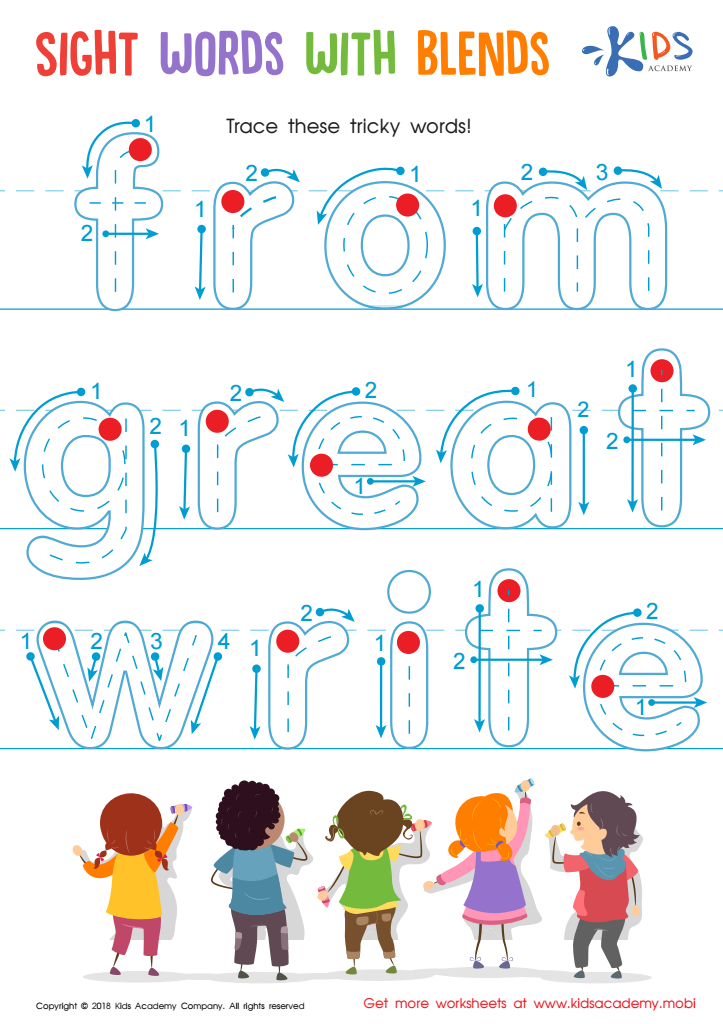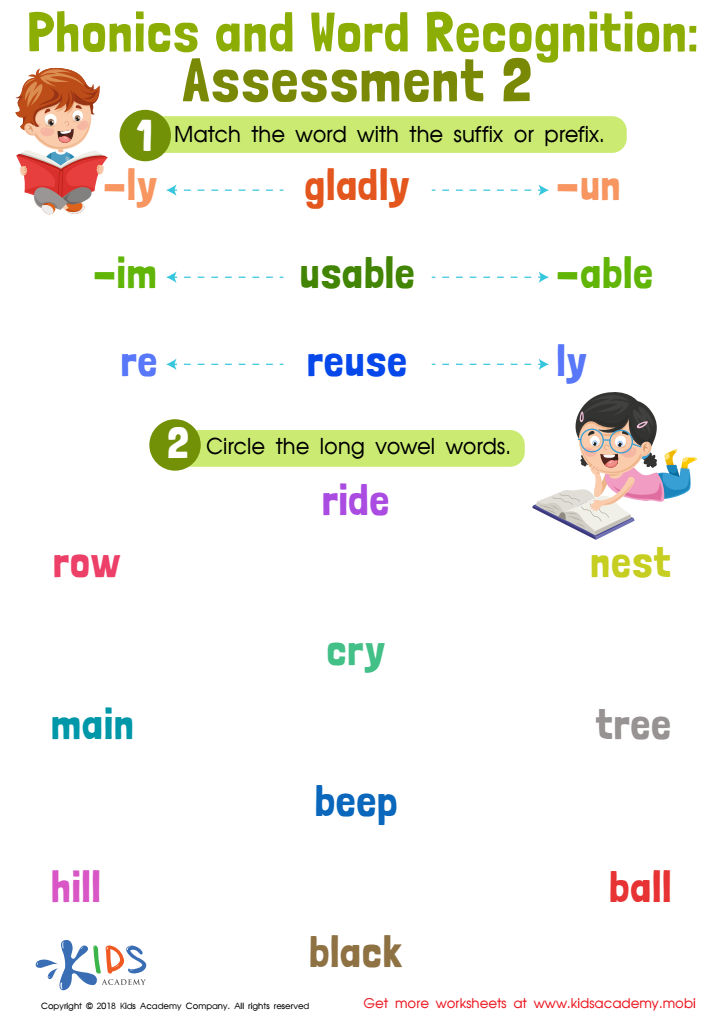Phonics recognition Writing Worksheets for Ages 6-9
5 filtered results
-
From - To
Discover our engaging Phonics Recognition Writing Worksheets designed specifically for children aged 6-9. These worksheets aim to enhance reading and writing skills through fun and interactive phonics exercises. By practicing letter sounds, blending, and decoding words, young learners will build a strong foundation in literacy. Each worksheet encourages creative writing and reinforces vocabulary through engaging activities tailored to their developmental stage. Ideal for home learning or classroom use, our resources promote independent learning and boost confidence in young writers. Help your child unlock the joy of reading and writing while mastering essential phonics recognition skills today!


Sight Words with Blends Worksheet


Phonics and Word Recognition: Assessment 1 Worksheet


Phonics and Word Recognition: Assessment 1 Worksheet


Phonics and Word Recognition: Assessment 2 Worksheet


Phonics and Word Recognition: Assessment 2
Phonics recognition is a crucial component of early literacy development for children aged 6-9. It involves understanding the relationship between sounds (phonemes) and their corresponding letters or groups of letters (graphemes). Parents and teachers should care deeply about phonics recognition because it lays the foundation for effective reading and writing skills.
One primary reason is that phonics helps children decode new words, nurturing their confidence and independence in reading. Mastery of phonics allows children to tackle a variety of texts, fostering a love of reading and learning. Consequently, this can lead to academic success across subjects, as reading proficiency is integral to understanding content in areas like science and history.
Moreover, phonics recognition enhances writing skills by enabling children to spell words correctly. When they grasp how sounds correspond to letters, they can express their thoughts and creativity on paper more effectively. Engaging with phonics through games, activities, and stories makes learning enjoyable, hence promoting a positive attitude towards education.
By prioritizing phonics recognition, parents and teachers can equip children with essential literacy skills that will benefit them throughout their educational journey and beyond. Investing in this foundational skill ensures a brighter future for young learners.
 Assign to My Students
Assign to My Students





















